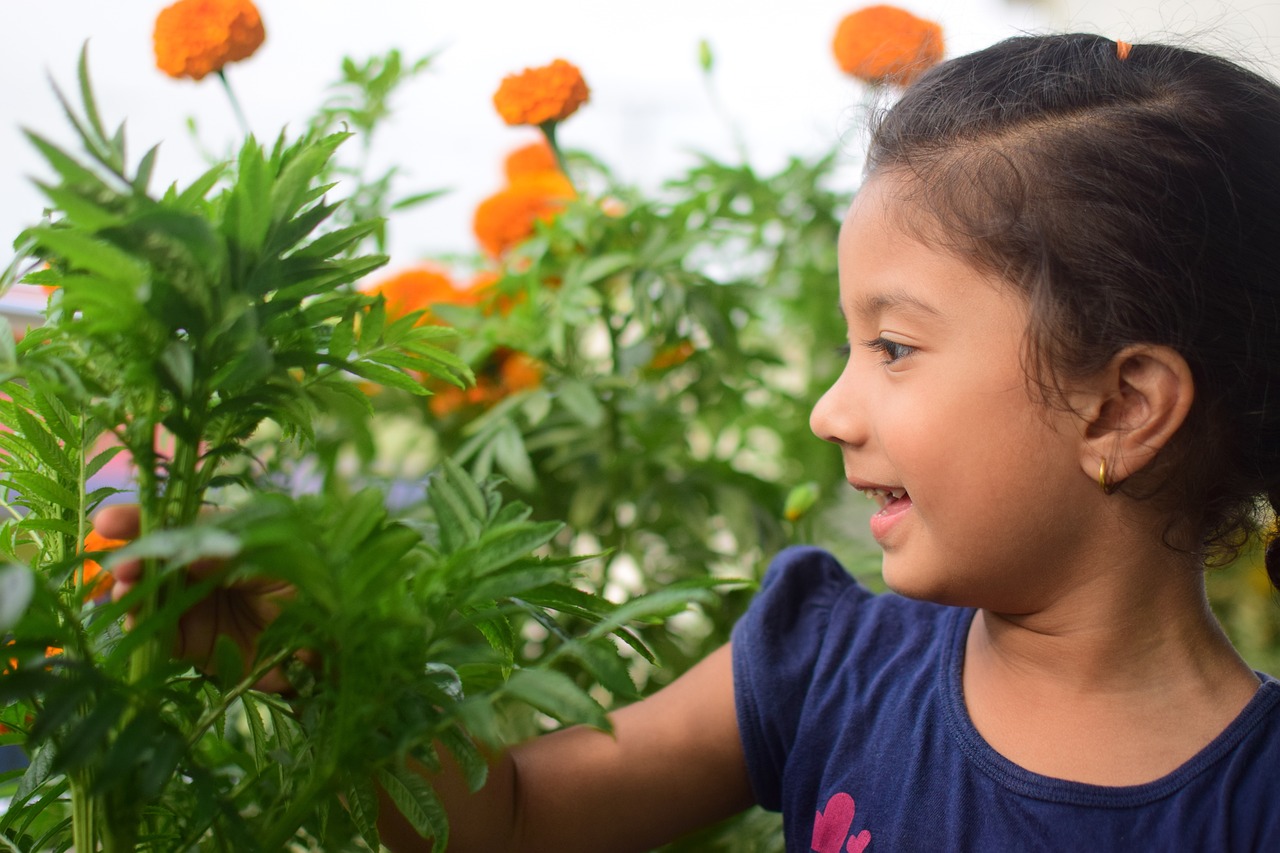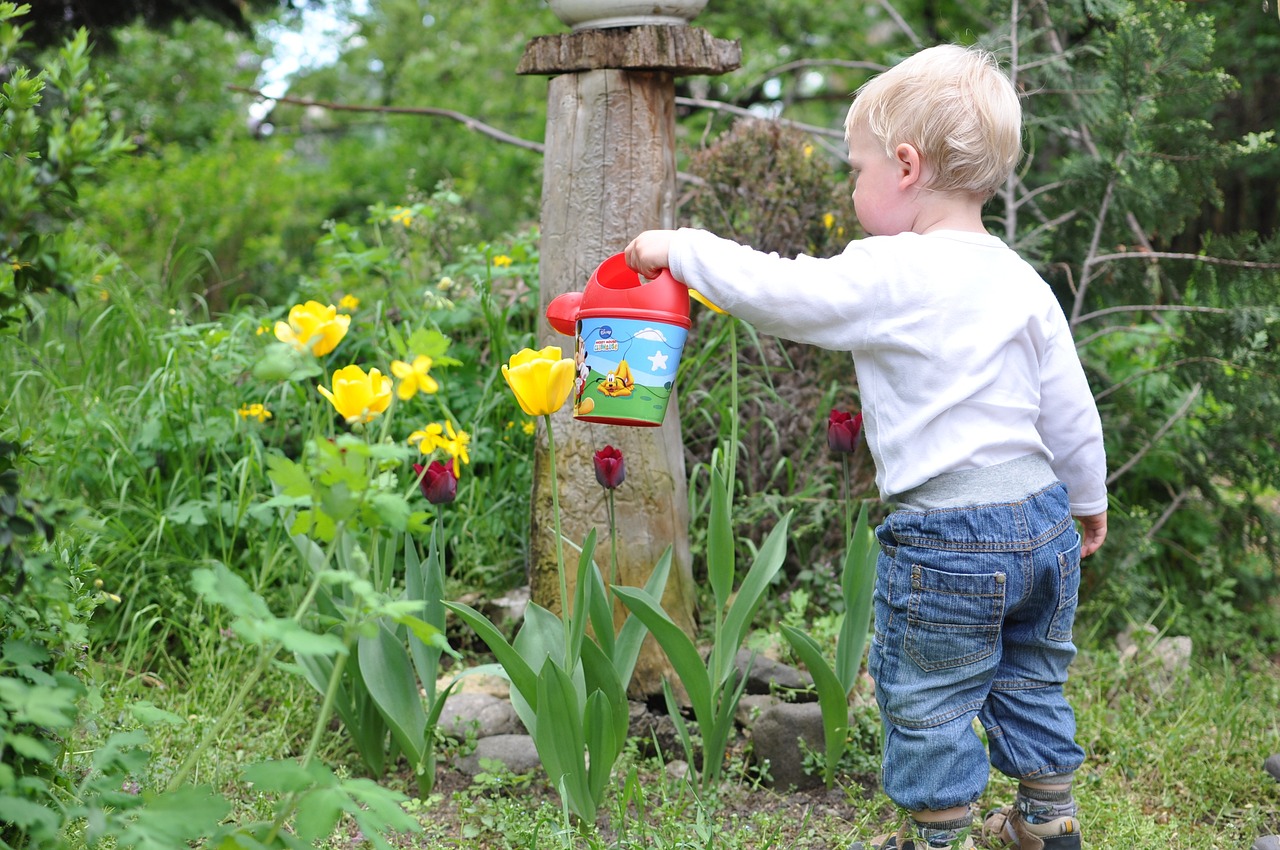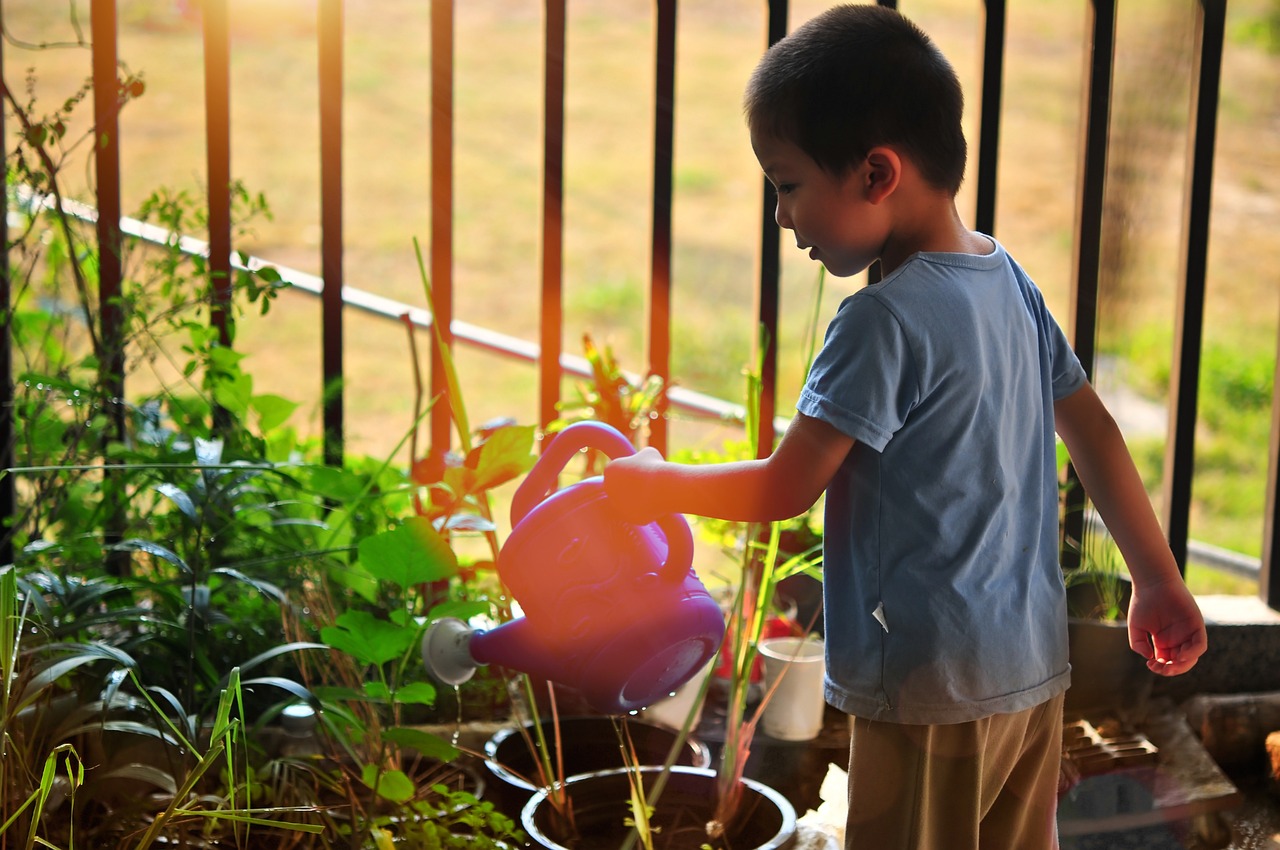Gardening with children is not only a fun and educational activity but also a wonderful way to instil a love for nature, teach valuable life skills, and foster a sense of responsibility and stewardship for the environment. Whether you have a spacious backyard or a small balcony, there are plenty of ways to involve children in gardening and cultivate their green thumbs. In this blog post, we’ll explore practical tips for gardening with kids that promote creativity, curiosity, and a deeper connection with the natural world.
Create a Child-Friendly Garden Space
Designate a child-friendly area in your garden where children can explore, play, and get their hands dirty. Consider creating raised beds or container gardens at a height that is easily accessible to children, allowing them to plant, water, and tend to their own plants independently. Incorporate child-sized tools, gloves, and watering cans to make gardening activities more manageable and enjoyable for little hands. By creating a dedicated space for children in the garden, you can encourage their interest in gardening and provide opportunities for hands-on learning and exploration.
Choose Kid-Friendly Plants
Selecting plants that are easy to grow, resilient, and visually appealing is key to keeping children engaged and excited about gardening. Opt for fast-growing vegetables such as cherry tomatoes, radishes, and salad greens that provide quick gratification and are ideal for short attention spans. Choose colourful flowers such as sunflowers, marigolds, and nasturtiums that attract pollinators and add beauty to the garden. Consider incorporating sensory plants such as lavender, mint, and basil that stimulate the senses and encourage children to explore the natural world through touch, smell, and taste.
Make it Educational and Interactive
Gardening provides countless opportunities for hands-on learning and discovery, making it an ideal activity for children of all ages. Use gardening as a platform to teach children about plant life cycles, the importance of soil health, and the role of pollinators in the garden ecosystem. Engage children in age-appropriate gardening activities such as seed sowing, transplanting seedlings, and harvesting ripe fruits and vegetables. Encourage curiosity and exploration by observing garden critters such as earthworms, ladybirds, and butterflies and discussing their roles in the garden ecosystem.
Embrace Messiness and Creativity
Gardening is inherently messy, and that’s part of the fun! Encourage children to get their hands dirty, explore different textures and materials, and embrace the creative process of gardening. Allow children to experiment with planting arrangements, mix and match colours and textures, and express their creativity through garden art projects such as painted plant pots, homemade garden markers, and DIY scarecrows. By embracing messiness and creativity in the garden, you can foster a sense of freedom and self-expression and create lasting memories that children will cherish for years to come.
Celebrate Achievements and Failures
Gardening is a journey filled with both successes and failures, and it’s important to celebrate and learn from both. Encourage children to take pride in their gardening accomplishments, whether it’s harvesting their first ripe tomato or watching a seedling sprout and grow into a thriving plant. Embrace teachable moments and use failures as opportunities for learning and growth, whether it’s a crop that doesn’t yield as expected or a plant that succumbs to pests or disease. By celebrating achievements and failures alike, you can foster resilience, perseverance, and a deeper appreciation for the natural world in children.
Conclusion
In conclusion, gardening with children is a rewarding and enriching experience that provides countless opportunities for learning, creativity, and connection with the natural world. By creating a child-friendly garden space, choosing kid-friendly plants, making gardening educational and interactive, embracing messiness and creativity, and celebrating achievements and failures, you can cultivate a love for gardening in children and instil valuable life skills and values that will serve them well into adulthood. So roll up your sleeves, grab your trowel, and embark on a gardening adventure with your children – the rewards are bountiful, and the memories are priceless.




